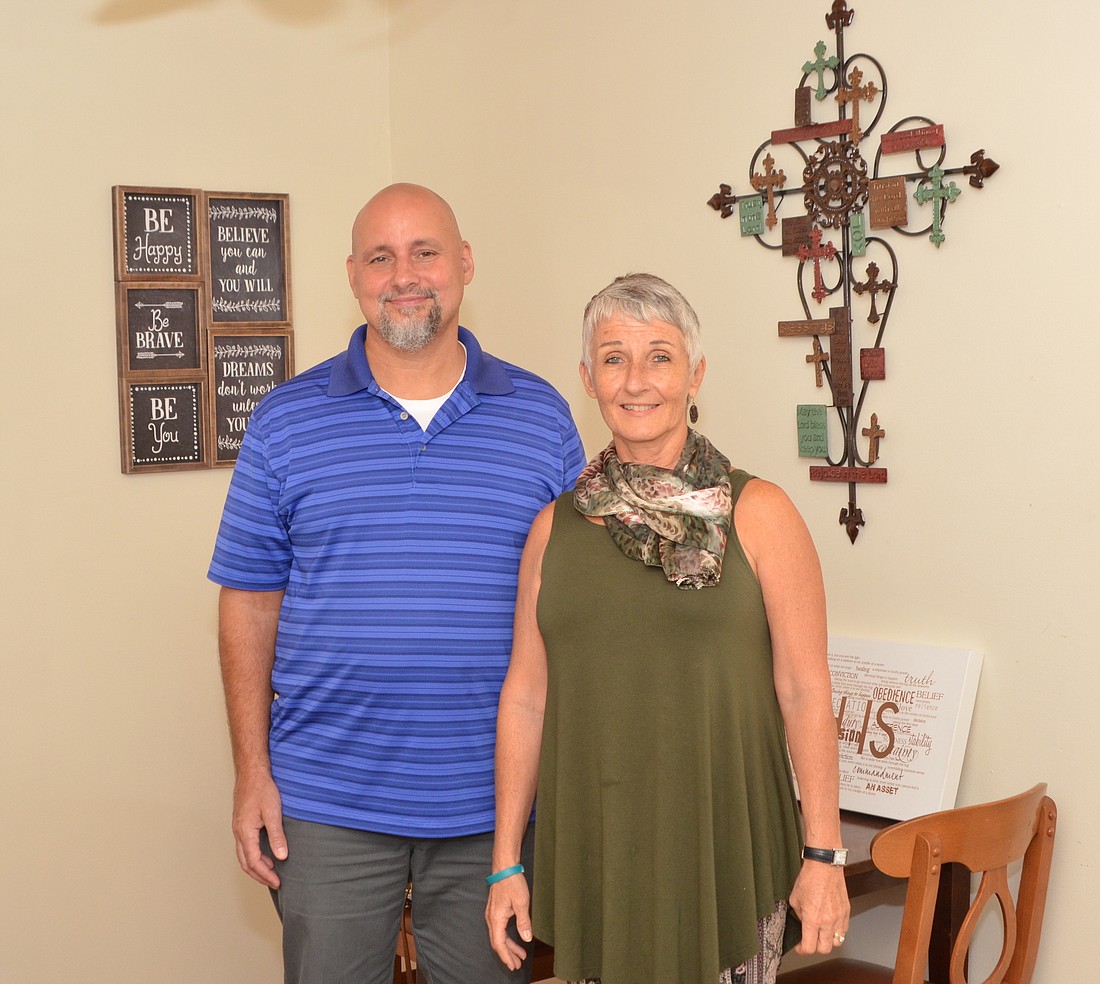- January 1, 2025
-
-
Loading

Loading

People of Faith Lutheran Church has started a service that will further connect the ministry with the community. Lutheran Counseling Services has opened a satellite center at the Winter Garden church.
“We have been here four-and-a-half years,” Pastor Rick Kristoff said. “We did a visioning time, and we decided this was something that the neighborhood could use. We have the YMCA down the street, the high school, we have youth service and Children’s Lighthouse. And hearing all the issues that people are having, we thought it would be a good thing to offer to the community.”
LCS has satellite offices around Central Florida, but the closest are in Mount Dora and Winter Park. Sharon Darin is a licensed mental health counselor who will meet people by appointment at the church in Winter Garden.
Hour-long sessions currently are offered on Thursdays and Saturdays, but the church already has plans to extend availability.
Darin is eager to start a parenting group, where participants will discuss “The Whole-Brain Child,” by Dr. Dan Siegel. The format will be part lecture, part parent participation, and Darin wants to hold brainstorming sessions with parents to learn what they are experiencing.
She’s considering a parenting group on millennials, as well.
The service is not limited to members of this or any church; anyone in the community needing help can make an appointment.
“I’m a Christian, (but) faith does not come into the room until the client brings it up,” Darin said. “I just try to meet the client where they are. It’s always a bonus when God’s a resource for them.”
Darin is qualified to speak to adults, children, couples and families, as well as people seeking counseling because of trauma, such as war veterans or sexual-abuse victims.
Kristoff and Darin hope anyone struggling and in need of change in their life will feel comfortable making an appointment.
“(Counseling) offers them a safe space to share their concerns, their fears, their trepidations in their life — a place to be supported and encouraged,” Darin said.
She has been in practice for three years, after earning her undergraduate and master’s degrees from Rollins College.
She became a mental-health counselor, she said, because “I love to listen and just to be present with people, and I find that just being present, it can be so healing, and that’s just the foundation of a relationship. The relationship with the counselor kind of mirrors the world. If you can feel heard and listened to, then you can apply that out in the world. It felt like a natural calling to me.”
Fees are determined on a sliding scale, and Darin said no one who seeks help will be turned away.
“September (is) Suicide Prevention Month, (and we want) to make people know that there is affordable help out there so that people can know they are not alone,” Kristoff said. “With the rise in suicides (especially high profile and among teens), we just want to make our community aware that professional help is available.
“Our services are also for individuals, couples and families who need help building and maintaining healthy relationships and lives,” he said.
For information about the counseling services, call (407) 644-4692. People of Faith Lutheran Church is at 228 Windermere Road, Winter Garden.
SEPTEMBER IS SUICIDE PREVENTION MONTH
RISK FACTORS AND WARNING SIGNS
• There’s no single cause for suicide. Suicide most often occurs when stressors and health issues converge to create an experience of hopelessness and despair. Depression is the most common condition associated with suicide, and it is often undiagnosed or untreated. Conditions like depression, anxiety and substance problems, especially when unaddressed, increase risk for suicide. Yet it’s important to note that most people who actively manage their mental health conditions lead fulfilling lives.
• Something to look out for when concerned that a person may be suicidal is a change in behavior or the presence of entirely new behaviors — especially if the new or changed behavior is related to a painful event, loss or change. Most people who take their lives exhibit one or more warning signs, either through what they say or what they do.
TALK
If a person talks about:
Killing himself or herself
Feeling hopeless
Having no reason to live
Being a burden to others
Feeling trapped
Unbearable pain
BEHAVIOR
Behaviors that may signal risk, especially if related to a painful event, loss or change:
Increased use of alcohol or drugs
Looking for a way to end their lives, such as searching online for materials or means
Withdrawing from activities
Isolating from family and friends
Sleeping too much or too little
Visiting or calling people to say goodbye
Giving away prized possessions
Aggression
Fatigue
MOOD
People who are considering suicide often display one or more of the following moods: depression, anxiety, loss of interest, irritability, humiliation, agitation or rage.
SUICIDE RISK FACTORS
Risk factors are characteristics or conditions that increase the chance that a person might try to take their life.
• Health factors — Mental health conditions; depression; substance-use problems; bipolar disorder; schizophrenia; personality traits of aggression, mood changes and poor relationships; conduct disorder; anxiety disorders; serious or chronic health conditions and/or pain; traumatic brain injury
• Environmental factors — Access to lethal means including firearms and drugs; prolonged stress, such as harassment, bullying, relationship problems or unemployment; stressful life events, which might include a death, divorce or job loss; exposure to another person’s suicide or to graphic or sensationalized accounts of suicide
• Historical factors — Previous suicide attempts; family history of suicide; childhood abuse, neglect or trauma.
Anyone who notices these signs in themselves or a friend immediately should call (800) 27308255, the National Suicide Prevention Lifeline.
SOURCE: Lutheran Counseling Services